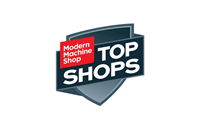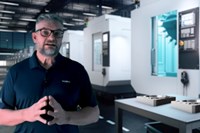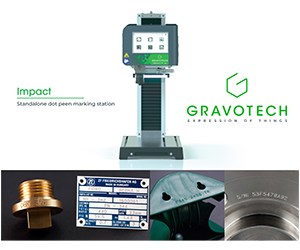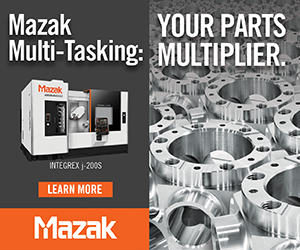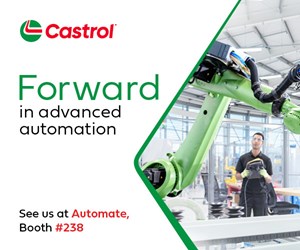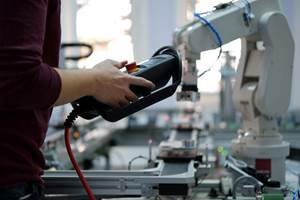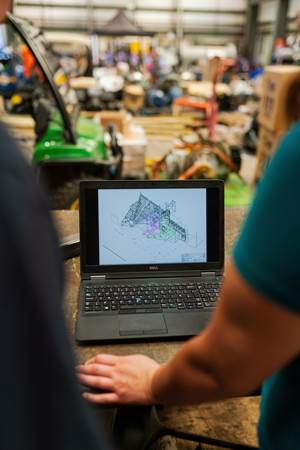Two Generations of Lessons from the Shop Floor
There are many hard-won lessons that come from running a family-owned shop, here are a few favorites.
There are not many minutes in a day, week or month that I am able to sit back and reflect on our shop’s operations. At Chapter 2 Inc. we are continuously innovating, finding solutions to problems and upholding employee culture during COVID-19. My business card states my job title as CEO, but I tend to wear many different hats each day. This is true for many management- and executive-level employees as well. Writing this column has been a great opportunity for us as a family-owned machine shop to take the time to sit back and reflect on our company and what we have learned through the years.
Hire Strategically
After sitting down with my dad and sister to discuss some of the things that have driven our success, we quickly agreed that, as leaders, we cannot be scared to hire and surround ourselves with people who are smarter than us. We must be vulnerable to the idea that people will know more than we do and that our role is not to be the smartest. Instead, we are here to run a business and to make sure the doors stay open. With this comes trust in our team, allowing them to make decisions even though we might feel the impulse to be involved in all company decisions. At times, this means letting our employees fail, but there is no greater learning experience than to learn from one’s own mistakes.
Plan for the Future
I have always intended to be involved with our family business. I knew I was not interested in becoming a tradesman, so I went to school for business, which was my strength. This stands in contrast to my dad who has worked for Chapter 2 for over 40 years and owned it with my mom for 35 years. They were able to grow the business because of my dad’s advanced manufacturing knowledge, but we all know that he will not work forever despite his threats to do so. This is another reason why it is has been important to hire and groom technically advanced people to fill that void. One of Chapter 2’s competitive advantages is our people. We have degreed engineers and advanced operations team members who can work together on what is best for the company, our customers and employees.
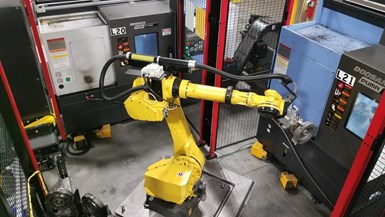
A robotic tending cell in the CNC shop.
Photo Credit: Chapter 2
Change with the Times
We have also learned to take a step back and adjust job duties for those who have reached their capacity in a certain area. Industry is ever evolving and advancing, and we need to have the correct employees in place to ensure Chapter 2 stays at the forefront of manufacturing. Over the years, we have made some transitions in job duties and hired to fit the business needs. This does not mean that we need to fire someone or demote them — their competences are still an important asset to the company. However, it is important to recognize necessary change for the sake of the business.
Embrace Culture
One thing that has remained an important factor for Chapter 2 is the employee culture. The company started out small, with that feeling of a “ma and pa shop.” As the company rapidly grew, the family worked hard to make all employees feel like family. My dad has always believed in spending time on the shop floor and instilled that in my sister and me early on. Most days, my position keeps me tied to my desk, but finding the time to walk the shop floor proves to be just as important as meeting a deadline on a quote or project. When the COVID-19 pandemic hit, we had to react quickly and make many decisions for our employees’ well-being. When business slowed, we had to lay employees off on a paid furlough. This is the last thing that we wanted to do to our employees, but it was in their best interest despite not feeling like it at the time. We needed to ensure that there was a business for them to come back to.
The success of Chapter 2 lies in the hands of those who surround us.
Reflecting on these lessons with my dad and sister has been a reminder that a family-owned business dynamic can be trying at times, but our business was built on a strong foundation of putting family first. The success of Chapter 2 lies in the hands of those who surround us. We will continue to nurture and strengthen our relationships with our employees and make sure we have the right strengths in the right places to prosper for years to come.
About the Author
Kyle Johnston
The second-generation CEO of Chapter 2 Inc. Over the 11 years he’s worked there, he has worn many different hats as he learned and grew with the company. Since 2018, he has co-owned the company with his sister Kali Garman.
Related Content
How Modal Testing Can Reveal Dynamic Machining Responses
Tool-holder-spindle-machine combinations each have a unique dynamic response in the same way that each person has a unique fingerprint, which can be revealed using modal testing.
Read MoreMake the Most of Your Interactions With Salespeople
Don’t miss out on products and knowledge that could help your company.
Read MoreOvercoming Barriers to Machine Shop Automation
Industrial automation using robots has improved productivity for operations large and small — so why do some manufacturers shy away from it?
Read MoreHow Transparency Can Help Machine Shops Become More Efficient
Here are three areas that a machine shop owner can use to both share information and gather new information that would help them become more efficient and effective.
Read MoreRead Next
Obscure CNC Features That Can Help (or Hurt) You
You cannot begin to take advantage of an available feature if you do not know it exists. Conversely, you will not know how to avoid CNC features that may be detrimental to your process.
Read More3 Mistakes That Cause CNC Programs to Fail
Despite enhancements to manufacturing technology, there are still issues today that can cause programs to fail. These failures can cause lost time, scrapped parts, damaged machines and even injured operators.
Read MoreThe Cut Scene: The Finer Details of Large-Format Machining
Small details and features can have an outsized impact on large parts, such as Barbco’s collapsible utility drill head.
Read More



